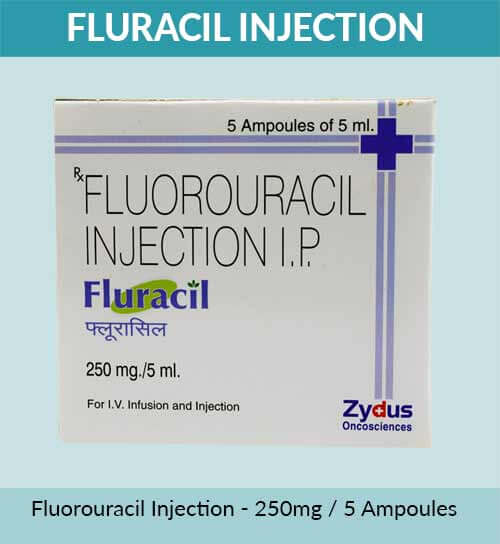Fluorouracil
Fluorouracil is a medication used in the treatment of various types of cancer, including colorectal cancer, breast cancer, and skin cancer. It belongs to a class of drugs known as antimetabolites.
Fluorouracil works by interfering with the synthesis of DNA and RNA in cancer cells. It inhibits the activity of an enzyme called thymidylate synthase, which is involved in the production of new DNA. By disrupting DNA synthesis, fluorouracil prevents cancer cells from dividing and multiplying, leading to their death.
The medication is typically administered through intravenous infusion or topical application, depending on the specific cancer being treated. The dosage and treatment duration vary depending on the type and stage of cancer, as well as the individual’s overall health.
Common side effects of fluorouracil may include nausea, vomiting, diarrhea, fatigue, and skin reactions at the site of application. More serious side effects, such as bone marrow suppression or cardiac toxicity, can occur but are less common. Regular monitoring of blood cell counts and cardiac function may be recommended during treatment.
Fluorouracil should only be used under the guidance and prescription of a qualified healthcare professional experienced in the treatment of cancer. It may interact with other medications, so it is important to inform the healthcare provider about all medications being taken, including over-the-counter drugs and supplements.
In summary, fluorouracil is a medication used in the treatment of various types of cancer. It inhibits DNA synthesis in cancer cells to prevent their growth and division. Regular monitoring and adherence to healthcare provider instructions are important during fluorouracil treatment.
Note – The brand names and product descriptions used on this site are for informational purposes only and are the property of their respective owners.



